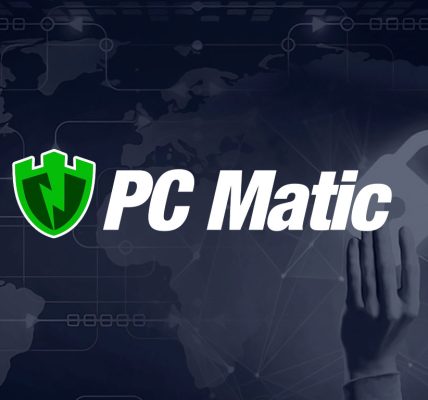Unveiling the Power of AI: The Synergy of DevOps and Machine Learning in Modern Enterprises
Unveiling the Power of AI: The Synergy of DevOps and Machine Learning in Modern Enterprises
The integration of Artificial Intelligence (AI) in various sectors has led to unprecedented advancements, transforming how businesses operate and make decisions. Among the numerous developments in AI, the fusion of DevOps and Machine Learning, often referred to as MLOps, stands out as a game-changer. This article explores the dynamic relationship between DevOps and Machine Learning, the need to hire app developer with expertise in these areas, and the revolutionary impact of Natural Language Generation (NLG) in today’s digital landscape.
The Convergence of DevOps and Machine Learning: Understanding MLOps
MLOps, a blend of Machine Learning (ML) and DevOps, is designed to streamline the deployment, monitoring, and management of machine learning operations models. This convergence addresses the unique challenges of deploying ML models, ensuring they perform optimally in production environments.
The Pillars of MLOps
-
Collaboration: MLOps fosters collaboration between data scientists, developers, and operations teams, enabling seamless integration of ML models into production.
-
Automation: By automating repetitive tasks such as testing, deployment, and monitoring, MLOps reduces manual effort and accelerates the development cycle.
-
Scalability: MLOps frameworks ensure that ML models can scale efficiently to handle increased data and user demands.
-
Monitoring: Continuous monitoring of ML models helps detect performance issues and data drift, ensuring models remain accurate and reliable.
The Importance of MLOps in Modern Enterprises
Implementing MLOps is essential for modern enterprises aiming to leverage AI effectively. The key benefits include:
- Enhanced Efficiency: Automated workflows reduce the time and effort required to deploy and maintain ML models.
- Improved Accuracy: Continuous monitoring and retraining ensure that models adapt to changing data patterns.
- Operational Resilience: Robust monitoring and alerting mechanisms help maintain model performance and minimize downtime.
Why Hiring App Developers with MLOps Expertise is Crucial
As businesses increasingly adopt AI, the demand for skilled app developers with MLOps expertise is on the rise. Here’s why hiring such professionals is essential:
1. Smooth Integration of AI
Developers with MLOps skills can integrate AI models seamlessly into applications, enhancing functionality and user experience. Whether it’s predictive analytics for a financial app or a personalized recommendation engine for a retail platform, MLOps ensures effective deployment and operation.
2. Scalability and Performance
MLOps frameworks are designed to handle large-scale deployments, ensuring that AI models can scale to meet growing data and user demands. This scalability is crucial for businesses looking to expand their AI capabilities without compromising performance.
3. Cost Savings
By automating various stages of the ML lifecycle, MLOps reduces the need for manual intervention, leading to significant cost savings. This efficiency allows businesses to allocate resources more effectively and invest in other critical areas.
4. Continuous Improvement
MLOps facilitates continuous improvement of AI models through regular monitoring and retraining. This approach ensures that models remain accurate and relevant, providing consistent value to the business.
5. Competitive Edge
Businesses that adopt MLOps can quickly deploy innovative AI solutions, gaining a competitive advantage in the market. Hiring developers with MLOps expertise ensures that companies stay ahead of the curve and capitalize on emerging opportunities.
Exploring the Impact of Natural Language Generation (NLG) in AI
Natural Language Generation (NLG) is a subfield of AI that focuses on generating human-like text from structured data. NLG is transforming various industries by automating content creation, enhancing customer service, and simplifying data analysis.
Key Applications of NLG
-
Automated Content Creation: NLG can generate high-quality content for blogs, product descriptions, and news articles, allowing content creators to focus on strategic tasks.
-
Enhanced Customer Service: AI-powered chatbots and virtual assistants leverage NLG to provide personalized responses to customer inquiries, improving satisfaction and efficiency.
-
Simplified Data Analysis: NLG transforms complex data sets into easy-to-understand narratives, helping stakeholders quickly grasp insights and make informed decisions.
Benefits of Implementing NLG
- Scalability: NLG systems can produce large volumes of text quickly, making them ideal for businesses with high content demands.
- Consistency: Automated content generation ensures a consistent tone and quality, which is essential for maintaining brand identity.
- Personalization: NLG can tailor content to individual users based on their preferences and behavior, enhancing engagement and conversion rates.
Steps to Successfully Implement NLG in Your Business
To harness the power of NLG, businesses need to follow a strategic approach. Here are the steps to ensure successful implementation:
1. Define Clear Use Cases
Identify specific areas where NLG can add value to your business, such as content creation, customer service, or data reporting. Clearly defining use cases helps in setting realistic goals and expectations.
2. Choose Appropriate NLG Tools
Select NLG tools and platforms that align with your business needs. Popular options include OpenAI’s GPT-3, Google’s BERT, and IBM’s Watson NLG. Evaluate these tools based on factors like ease of use, integration capabilities, and cost.
3. Collaborate with AI Experts
Working with AI experts can significantly enhance the implementation process. These professionals can help design, develop, and deploy NLG systems tailored to your specific requirements.
4. Monitor Performance
Continuous monitoring is essential to ensure that the NLG system performs as expected. Collect feedback, track performance metrics, and make necessary adjustments to improve accuracy and relevance.
Conclusion
The fusion of DevOps and Machine Learning, encapsulated in MLOps, is transforming how enterprises deploy and manage AI models. By fostering collaboration, automation, scalability, and continuous monitoring, MLOps ensures that AI models perform optimally in production environments. Hiring app developers with expertise in MLOps is crucial for businesses looking to leverage AI effectively and gain a competitive edge.
Simultaneously, Natural Language Generation (NLG) is revolutionizing content creation, customer service, and data analysis by automating the generation of human-like text. Its ability to scale, maintain consistency, and personalize content makes it a valuable asset for businesses aiming to enhance their communication and engagement strategies.
As AI technologies continue to evolve, staying updated with the latest trends and adopting best practices like MLOps and NLG is essential for businesses striving to stay competitive. Embracing these innovations can unlock new opportunities, drive growth, and propel enterprises toward a future where AI-driven solutions are the norm.





